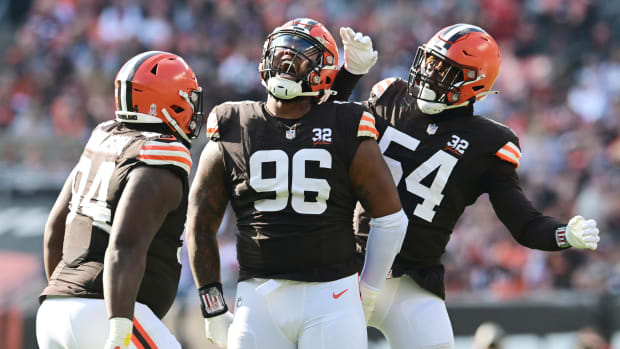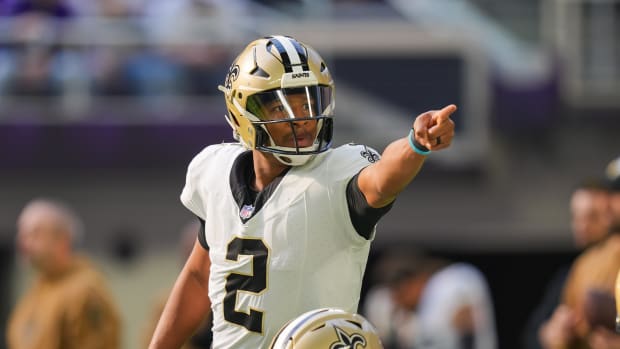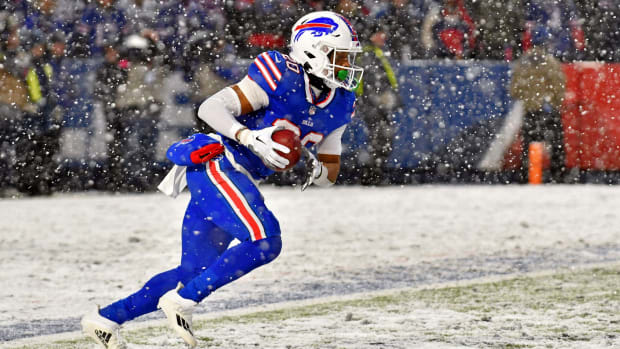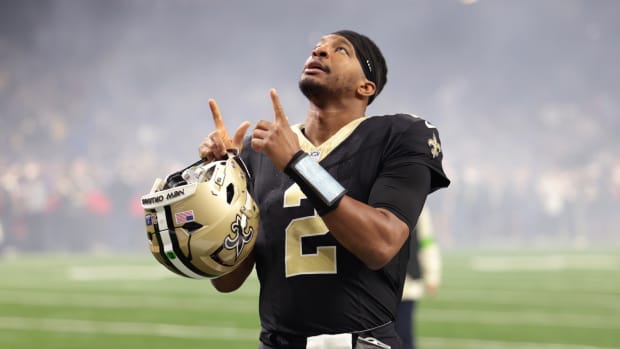XFL With Opportunity to Thrive As Colleges Wrestle With Ethics
It's difficult to imagine that there will ever be a better opportunity for an alternative football league to be viable and thrive than with the current uncertainty of college football.
No sport has a higher bar to clear to occur than collegiate football. Well, at least one would think, given the problems raised by COVID-19. Beyond the challenges to protect student athletes and provide a safe environment where they don't get infected, but the theory is that student athletes are students first. Universities are supposed to be functioning for their intended purpose before they take advantage of an unpaid labor force to print money. Money, which the fallout from COVID-19 has proven they're incapable of managing.
An alternative league isn't pretending it's a university and the athletes are paid. They have a much lower bar to clear to be able to function, for players to practice and for teams to play games. Enter the XFL, which suspended and ultimately cancelled its inaugural season to COVID-19. The league then declared bankruptcy, seemingly shutting down the league. It may simply prove a way to avoid paying its employees before it either starts back up or is sold to parties that would like to take over the operations and continue it.
There are reportedly a number of interested parties, likely recognizing this potential avenue for success. A functioning XFL could end up attracting a number of collegiate players to their league out of fear they won't be able to play this year at respective colleges.
In response to this and simply because they are broke, universities and athletic conferences are checking any pretense at the door. Both have shown a willingness to forget that they are academic institutions first and find ways to get football played, so they can make money. Any argument over the concept of the student athlete went out the window when there are discussions in place to find ways to get student athletes able to participate on team activities, potentially even play games, even if the campus isn't functioning in its designed purpose.
Some are hiding behind the idea of online classes or some alternative curriculum, but the bottom line is they will come up with any excuse possible to get football played and potentially fans in the stands because of what it means to their bottom line and overall budget.
Big XII Commissioner Bob Bowlsby said as much, despite the fact that NCAA President Mark Emmert saying students need to be on campus before sports can take place on May 9th.
“Going to class in an online session is satisfactory. There’s room for that to happen. School has to be in session, student-athletes have to be going to class.”
California state colleges have already cancelled all on campus classes this fall, going entirely virtual. No decision has been made on football to this point, but the PAC-12 announced on Tuesday that voluntary in-person workouts can begin June 15th. Since four of its members are schools in California, it's a pretty clear indication of which direction that decision is headed.
The problem for college football is there may be entire conferences that can function without issue. At this point, it seems difficult to believe that everyone will be able to function and no one will be impacted by COVID-19, even if it's entirely from a scheduling standpoint.
The XFL has no such issues. With far fewer teams, they aren't trying to have hundreds of games go on each week. They also would not be dependent on filling a stadium with 100,000 seats.
The key for the XFL is star power. They have to be able to draw some from the collegiate ranks. If they can, not only might it cause other players to follow suit, but it gives them a face for their league. The XFL had some talented players, but no one that created much buzz.
Star power was key when it came to making the AFL viable enough to compete with the NFL, ultimately forcing a merger. The USFL fell apart due to terrible business practices, but their initial success was built on being able to add some of the biggest stars in the country. If the XFL can draw a star or few from the college ranks, it can become a draw. There is no better opportunity to attract star power than this year. And if they can do it, it would force the NFL to pay attention to them on a full time basis.
The best thing the XFL can do, whether under its current ownership or someone else's, is to declare itself up and running, getting itself prepared to operate as soon as possible, so they can start sending that message to prospective players on the collegiate level.
The University of Michigan said on Monday they will not have sports unless students are on campus.
“If there is no on-campus instruction then there won’t be intercollegiate athletics, at least for Michigan,” said Dr. Mark Schlissel, who is the President of the University in addition to having a background as an immunologist.
He added that there is currently “some degree of doubt as to whether there will be college athletics [anywhere], at least in the fall.”
It remains to be seen if the XFL can capitalize on the uncertainty that has universities wrestling with their own ethics, but if nothing else, this should end any ridiculous notion of the student athlete and the idea they should continue as an unpaid labor force. As for a legitimate alternative league as a concept, it seems like it's now or never.




